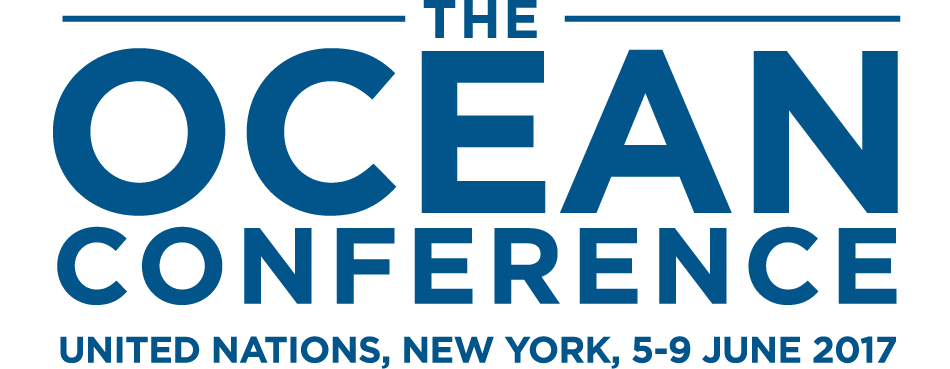Daily report for 13 September 2017
13th Session of the Conference of the Parties to the UNCCD (COP 13)
On Wednesday, 13 September, UNCCD COP 13 delegates convened in a morning plenary meeting of the COW to consider: implementation of the comprehensive communication strategy and the UN Decade for Deserts and the Fight against Desertification (2010-2020); promotion and strengthening of relationships with other relevant conventions and international organizations, institutions and agencies; participation and involvement of civil society organizations (CSOs) and the private sector in meetings and processes of the UNCCD; and the business engagement strategy.
In the afternoon, the CRIC adopted six draft decisions on: development and implementation of strategies through national action programmes to achieve the objectives of the Convention in light of target 15.3 of the 2030 Agenda for Sustainable Development; mobilization of resources for the implementation of the Convention; collaboration with the Global Environment Facility (GEF); and two draft decisions on procedural matters. COW contact groups on the budget and on other matters met during the day and into the evening.
COW
In the morning, COW Chair Nosipho Ngcaba opened the session.
2030 AGENDA FOR SUSTAINABLE DEVELOPMENT: IMPLICATIONS FOR THE UNCCD
Implementation of the comprehensive communication strategy and the UN Decade for Deserts and the Fight against Desertification (2010-2020): The Secretariat introduced document ICCD/COP(13)/4, noting the need for a revised communication framework that complements the future UNCCD strategic framework. She highlighted action taken by the Secretariat resulting from the independent evaluation of the effectiveness of the UNCCD communication, inter alia: reorganization of the newsletter; revamping of the UNCCD website and re-branding; outreach on social media; dissemination of human-interest stories; and the continued support to the World Day to Combat Desertification received from Parties, notably China and Burkina Faso.
SAUDI ARABIA expressed his dissatisfaction with the document noting the actions taken were insufficient, and lamenting that initiatives and events organized by his country were not referenced. He called for setting clear objectives and indicators as included in the independent evaluation.
The COW forwarded this item to the Contact Group on Other Matters for further deliberation.
EFFECTIVE IMPLEMENTATION OF THE CONVENTION AT NATIONAL, SUBREGIONAL AND REGIONAL LEVEL: Promotion and strengthening of relationships with other relevant conventions and international organizations, institutions and agencies: The Secretariat introduced document ICCD/COP(13)/6.
CSOs said the synergies between the three Rio Conventions need to be further improved, especially at the national level, and highlighted that CSOs and local communities need to be involved in these processes. EU asked for more information on the links with water related processes, especially UN-Water and the Convention on the Protection and Use of Transboundary Watercourses and International Lakes (Water Convention).
The COW forwarded this item to the contact group on other matters for further deliberation.
PROCEDURAL MATTERS: Participation and involvement of CSOs in meetings and processes of the UNCCD: The Secretariat introduced document ICCD/COP(13)/15 and expressed UNCCD’s support for CSOs’ participation. One representative from the CSO Panel commended CSO empowerment over the previous two years and called for further global contributions to ensure the sustainability of the CSO Panel. Bariş Karapinar, CSO Panel, highlighted some key points to achieve the LDN goals, inter alia: integrating land tenure security into national strategies; carrying out land rights assessments; raising government awareness about the links between land rights and land degradation; ensuring tenure security; setting up dispute resolution mechanisms; adopting new legal approaches and carrying out legal reviews to allow easy-to-make changes in support of LDN; strengthening international efforts and organizations targeting land rights; promoting partnerships among government, civil society, investors and donors in relation to land rights; and linking the Voluntary Guidelines on the Responsible Governance of Tenure of Land, Fisheries and Forests to the LDN targets and the 2030 Agenda.
EU suggested that the extension of the CSO Panel should be further discussed in the contact group. ERITREA outlined the role of CSOs in promoting regional LDN targets. SWITZERLAND questioned the efficiency and consistency of the UNCCD’s work programme for the next biennium, and remarked that the CSO Panel should also be allowed in contact groups as “silent observers.” KYRGYZSTAN and NAMIBIA emphasized the role women play, and called for further actions from the CSOs towards gender equality.
The COW forwarded this item to the contact group on other matters for further deliberation.
Participation and involvement of the private sector in meetings and processes of the UNCCD and the business engagement strategy: The Secretariat introduced a progress report of its business engagement strategy (ICCD/COP(13)/16), highlighting the successful launch of the LDN Fund, the development of value chains, the Sustainable Land Management Business Forum, the first Technology for Sustainable Land Management Fair at COP 13, the Soil Leadership Academy, and the UN Global Compact Principles for Sustainable Soil Management.
CSOs underscored the need to ensure the highest human, social and environmental standards and protect the interests of vulnerable groups in private sector-led projects. They called for CSO involvement in monitoring of initiatives supported by the private sector, especially those identified as transformative projects, and cautioned against viewing these initiatives as a replacement for the regular public funding streams of the Convention.
Concluding the session, Chair Ngcaba expressed concern about the limited negotiation window and urged the COW contact groups to carry out their work in an expeditious way.
CRIC
CRIC Chair Aliyu Bananda announced that two items still need further consideration under the CRIC Contact Group, namely the programme of work for CRIC 17, and its date and venue.
In the afternoon, Chair Bananda invited delegates to adopt six draft decisions finalized in the CRIC contact group, which the Committee adopted by acclamation.
Delegates first adopted the three draft decisions under the sub-item on ‘Effective implementation of the Convention at national, subregional and regional levels,’ namely: ‘Development and implementation of strategies through national action programmes to achieve the objectives of the Convention in light of target 15.3 of the 2030 Agenda for Sustainable Development’ (ICCD/CRIC(16)/L.2); ‘Mobilization of resources for the implementation of the Convention’ (ICCD/CRIC(16)/L.1); and ‘Collaboration with the Global Environment Facility’ (ICCD/CRIC(16)/L.4).
In response to an intervention by SAUDI ARABIA drawing attention to some inconsistencies in the Arabic language translation, the Secretariat said it had taken note of the concerns raised and would ensure that all language versions are in conformity with the English version.
Delegates then adopted the draft decision on improving the procedures for communication of information as well as the quality and formats of reports to be submitted to the COP (ICCD/CRIC(16)/L.3).
Finally, the CRIC adopted the review of the CRIC 15 report and two draft decisions on procedural matters: the date and venue of CRIC 17 (ICCD/CRIC(16)/L.5) which, subject to the availability of resources, should be held during the second half of 2018, at the most cost-effective venue of either Bonn, Germany, the site of the Convention secretariat, or in any other venue with United Nations conference facilities in the event that no Party makes an offer to host the session and meet the additional financial costs; and programme of work for CRIC 17 (ICCD/CRIC(16)/L.6).
Nigeria, on behalf of the AFRICAN GROUP, highlighted the importance of, inter alia: technical and financial resources to implement the Convention; strengthening collaboration with the GEF to achieve LDN; capacity building for reporting; and reviewing the progress of implementation.
The CRIC then heard the CRIC 17 report by rapporteur Raymond Baptiste, who reviewed the process and outcome of the CRIC decisions, lauding the cooperation from members of the contact group, urging ongoing practical actions.
The CRIC elected the four Vice-Chairs nominees: Nino Chikovani (Georgia); Anna Luise (Italy); Jorge Luis García Rodriguez (Mexico); and a representative from Namibia, and thus completed its programme of work. Chair Bananda closed the session at 4:03 pm.
CONTACT GROUPS
CRIC CONTACT GROUP: In the morning, the contact group finalized discussion of the remaining two draft decisions on procedural matters and forwarded them to the CRIC plenary for adoption.
COW CONTACT GROUP ON OTHER MATTERS: The group began consideration of the draft decision on the Policy Advocacy on Drought, which continued into the evening.
BUDGET CONTACT GROUP: The group met throughout the day.
IN THE CORRIDORS
The CRIC contact group maintained its brisk pace on Wednesday, finalizing its work and eliciting congratulations from the CRIC Chair, who commented during the CRIC closing plenary that the group had made history by concluding its substantive work in just two sessions.
Unfortunately, the COW contact groups did not manage to capitalize on the early adjournment of the CRIC sessions. In the morning, two hours were lost as negotiations could not resume due to a lack of quorum. This in turn had a domino effect on discussions in the budget contact group which ground to a halt as it awaited guidance from the second COW contact group on the kinds of programmes envisaged under the draft decision on Drought Policy Advocacy. In the meantime, discussions in that group threatened to drag on until late in the evening.
Meanwhile, it was becoming apparent that the relatively relaxed start to this COP that had raised the prospect of an early end to the COP – which would have marked another UNCCD first – may have instilled a false sense of complacency. By lunchtime, delegates could be seen huddled over their chopsticks, spilling noodles onto conspicuous documents while straining to find compromise language with opposing delegations.
As nightfall approached, a new despondent tone appeared to set in. Some delegates were heard to speculate that at this rate, even the most important outcome of COP 13 – the future Strategic Framework – that had been considered a “done deal” at the start of the COP, might be “reopened.” Increasingly, it seemed, the conversations were changing from planning a second weekend excursion to speculating on the consequences for Convention implementation if this COP does not deliver on its promises.
-->
Specific funding for coverage of the Ocean Conference - June 2017, has been provided by the
XXX, XXX, and XXX
-->
IISD Reporting Services is a division of the International Institute for Sustainable Development (IISD).
Earth Negotiations Bulletin (ENB), ENB+, and Knowledge Management for Sustainable Development
are branches within IISD Reporting Services.
© 1992-2017, IISD Reporting Services. All rights reserved.







